By: Kristin Kuwada, Communications & Marketing Intern, Office of Sustainability Initiatives
During Women’s History and Climate Awareness Month, we are humbly learning about the work of less often recognized, seasoned climate activists who have all transformed the hearts, minds and places of their communities. From writing influential books and critical reports to founding organizations that inspire and serve communities, these leaders have all uniquely advanced the climate justice movement by spreading awareness of urgent environmental and social justice issues and also fearlessly implementing solutions to them.
Marina Silva, Brazil
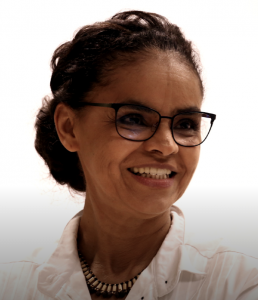
Marina Silva was a key figure in organizing peaceful deforestation protests called empates that helped establish an expansive reserve (about 4,900,000 acres) during the early 1980s when rubber tappers threatened to take over indigenous lands in Acre, Brazil. Silva led several demonstrations to protect the Amazon Rainforest as well as the local communities that rely on it. Ultimately, the movement she helped sparked from her demonstrations led to the future establishment of “sustainable extractive reserves” – publicly owned land upon which people have the right to live and to utilize resources for subsistence practices – throughout the rainforest. In 2013, she launched her own political party, called the Sustainability Party (REDE), of which she remains an active leader today. Most recently, she founded the Marina Silva Institute to advance sustainable development.
Sunita Narain, India
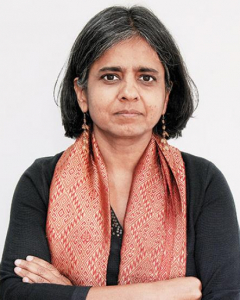
Sunita Narain, Director General of the Centre for Science and Environment in India is a prominent environmentalist and author with significant contributions to the research conducted in the convergent fields of food and the environment. Narain has introduced solutions for combating air pollution by leading efforts to implement the use of Compressed Natural Gas to fuel buses in New Delhi, which has become a model for reducing air contamination in transportation. She has also focused her work on emphasizing the necessity for water security by reporting on the state of urban water supply, sewage management, and pollution. Today, she continues to draw attention to the need for an equitable and effective climate change agreement.
Wangari Maathai, Kenya
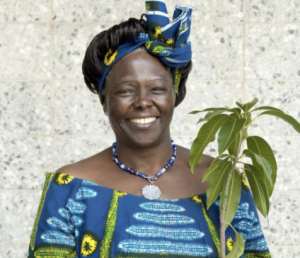
Wangari Maathai is a Kenyan educator and government official who founded the Green Belt Movement in 1977, an organization that planted more than 30 million trees with the purpose of preventing deforestation and desertification. In 2003, she was appointed assistant minister of the environment, natural resources, and wildlife and in 2004 she won the Nobel Prize for her holistic approach to sustainable development that embraces “democracy, human rights, and women’s rights in particular.” In addition, she is an accomplished writer, who published noteworthy books including The Green Belt Movement: Sharing the Approach and the Experience, Unbowed, and The Challenge for Africa.
Winona LaDuke, U.S.
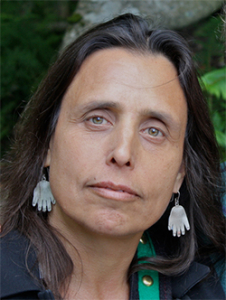
As a Native American land rights activist, environmentalist, politician, economist, and author, Winona LaDuke has been successful in gaining public support and fundraising for environmental groups through her work as a program director for the Honor the Earth Fund. To preserve and restore Indigenous lands, LaDuke founded the White Earth Land Recovery Project, and in 1985, she created the Indigenous Women’s Network to encourage Native women to carve out their spaces within political, social, and cultural movements and to empower them to become activists. Her expertise areas include cultural-based sustainable development strategies, renewable energy, and sustainable food systems. She is one of the leaders in the work of protecting Indigenous plants and heritage foods from patenting and genetic engineering.
Dorceta Taylor, U.S.
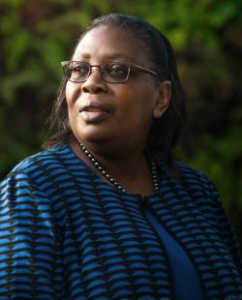
Dr. Dorceta Taylor is an advocate for institutional diversity within the environmental movement, a professor at the Yale School for the Environment, and author of the award-winning book The Environment and the People in American Cities, as well as many scholarly articles. She has researched the disproportionate access to food in low-income communities and continues to bring awareness to the topic of food security, pollution exposure, fair housing, energy justice, and water quality. Her 2014 watershed study revealed the shocking lack of people of color in nearly 200 environmental organizations that motivated these institutions to make commitments to increase diversity within their workforces.
Beverly L. Wright, U.S., Southeast

Dr. Beverly L. Wright is an environmental justice scholar and advocate, author, civic leader, and professor of Sociology as well as the founder of the Deep South Center for Environmental Justice (DSCEJ) that aims to bring awareness to environmental and health inequities that can be observed in the Louisiana-Mississippi River Chemical Corridor, also known as “Cancer Alley,” and the Gulf Coast Region. The DSCEJ has created grants to fund new research, education, public advocacy, capacity-building, and community-based training for K-12 students and college students. One of DSCEJ’s major programs is the HBCU Climate Change Consortium, through which DSCEJ helps “raise awareness about the disproportionate impact of climate change on marginalized communities to develop HBCU students leaders, scientists and advocates on issues related to environmental and climate justice policies, community resilience, adaptation and other major climate change topics.”
Mildred McClain, U.S., Georgia
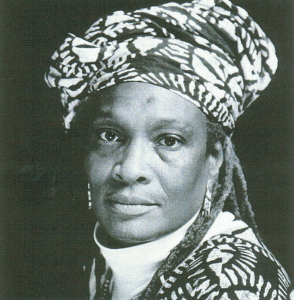
Dr. Mildred McClain is an environmental justice activist and founder and executive director of the Savannah-based Harambee House/Citizens for Environmental Justice that brings attention to social and environmental justice issues and serves communities on a local and international level. She has created crucial partnerships with the Department of Energy, Environmental Protection Agency, Agency for Toxic Substances, Centers for Disease Control, and many other organizations to help further solutions to public health disparities and environmental injustice. Recently, as the leader of the Harambee House, she joined other environmental justice and national environmental groups in creating the Just and Equitable National Climate Platform that “confronts racial, economic, and environmental injustice as it enacts deep cuts in climate pollution and accelerates a pollution-free energy future that benefits all communities.”
These women have transformed the health of their communities by way of tireless advocacy, mobilization, research, education, outreach and care. We all can learn from these leaders about the integral need to and strategies for centering racial and ethnic justice in sustainability work. We are also highlighting and learning from some of the many determined women who have made invaluable contributions during key moments in sustainability, environmental justice and climate action history here.
Works Cited:
Britannica. Wangari Maathai. Retrieved March 08, 2021, from https://www.britannica.com/biography/Wangari-Maathai
Center for Science and Development. Sunita Narain. March 09, 2021, from https://www.cseindia.org/page/sunita-narain
Cuyahoga Valley National Park. (2020, December 08). Carl B. Stokes and the 1969 River Fire. Retrieved March 08, 2021, from https://www.nps.gov/articles/carl-stokes-and-the-river-fire.htm
Deep South Center for Environmental Justice. Beverly L Right PHD. Retrieved March 08, 2021, from https://www.dscej.org/our-story/our-team/beverly-l-wright-phd
Global Green News, Marina Silva Sustainability Party Founder, Brazil. Retrieved March 09, 2021, from https://globalgreen.news/marina-silva-sustainability-party-founder-brazil/
Harvard Law. Women Inspiring Change. Retrieved March 08, 2021, from https://orgs.law.harvard.edu/womeninspiringchange/2015-honorees/marina-silva/
National Women’s Hall of Fame. Winona LaDuke. Retrieved March 08, 2021, from https://www.womenofthehall.org/inductee/winona-laduke/
Our Daily Planet. Hero of the Week: Dr. Mildred McClain. Retrieved March 08, 2021, from https://www.ourdailyplanet.com/story/hero-of-the-week-dr-mildred-mcclain/
The Goldman Environmental Prize. Marina Silva. Retrieved March 08, 2021, from https://www.goldmanprize.org/recipient/marina-silva/
Union of Concerned Scientists. Environmental Justice and National Environmental Groups Advance a Historic Joint Climate Platform. Retrieved March 09, 2021 from https://ucsusa.org/about/news/environmental-groups-advance-historic-joint-climate-platform
World Health Organization. Biography of Ms Sunita Narain, Director General of the Centre for Science and Environment, India. Retrieved March 08, 2021, from https://www.who.int/antimicrobial-resistance/interagency-coordination-group/sunita_narain_bio/en/
Yale School of the Environment. Dorceta Taylor, Preeminent Environmental Justice Scholar, to Join the F&ES Faculty. Retrieved March 09, 2021, from https://environment.yale.edu/news/article/dorceta-taylor-preeminent-environmental-justice-scholar-returns-to-yale/
2021 National Environmental Justice Conference & Training Program Dr. Mildred McClain. Retrieved March 09, 2021, from https://thenejc.org/dr-mildred-mcclain/
